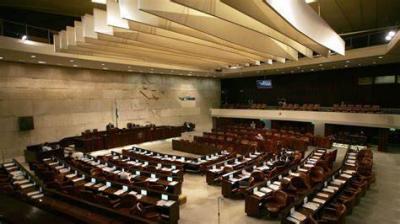The Israeli Knesset is set to conduct its first vote today, Monday, on a bill that limits some powers of the Supreme Court, as part of proposed judicial amendments pushed by Prime Minister Benjamin Netanyahu, amid a major political crisis in the country.
The plan to introduce amendments to judicial authority laws, presented by Netanyahu's ruling coalition of nationalist and religious parties, has sparked unprecedented protests in Israel, raised concerns among Western allies about the safety of democracy in the country, and harmed the economy.
The ruling coalition holds 64 out of 120 seats in the Knesset, indicating a likely victory in the first of three required votes to pass the new bill into law. Protests are expected to intensify if this occurs. Netanyahu stated that as the Knesset began discussing the bill, "This is not the end of democracy; it strengthens democracy." He added, "Even after the amendments, the independence of the court and civil rights in Israel will not be harmed in any way. The court will continue to oversee the legality of government procedures and appointments."
The roar of protesters can be heard as they gather in front of the Supreme Court and march to the Knesset, clearly audible near the Bank of Israel (the central bank), after its governor, Amir Yaron, urged the government to seek broad consensus regarding the legislative amendments to protect institutional independence. Yaron remarked, "The continued state of uncertainty has a significant economic cost," referring to excessive depreciation of the shekel and weak performance in the Israeli stock market.
Yesterday, Sunday, Netanyahu hinted that "his patience is running thin" regarding the renewed protests, while opponents have pledged to organize demonstrations across Israel, one of which is planned for Tuesday at Ben Gurion Airport.
Starting today, the ruling coalition seeks to move forward with legislative steps related to the bill that limits the authority of the Supreme Court to overturn decisions made by the government, ministers, and elected officials.
Critics argue that the bill invites corruption and abuse of power, while supporters claim it will facilitate effective governance by reducing court interference in decisions.
Divisions over the judicial amendments have created rifts within Israeli society. Netanyahu had suspended plans to pass the amendments in order to hold talks with the opposition for a consensus overseen by the Israeli president, but discussions stalled last month, leading the coalition to resume its efforts to pass the bill.
Netanyahu, who is on trial for corruption charges he denies, states that the amendments aim to restore balance among branches of power and downplays the economic repercussions of the plan that have raised concerns among investors and weakened the shekel's value.




